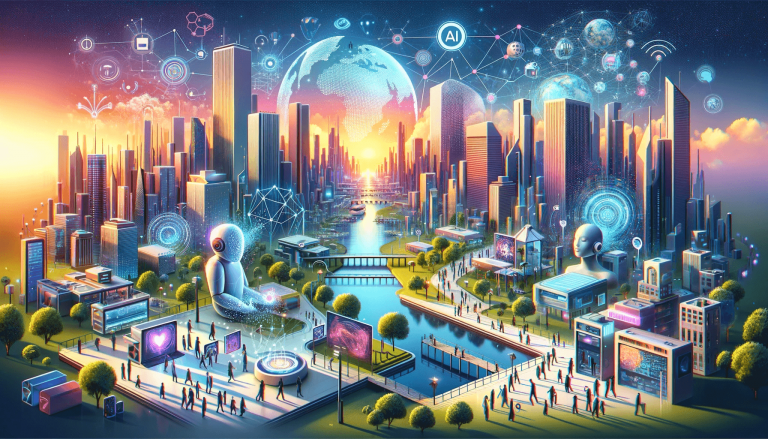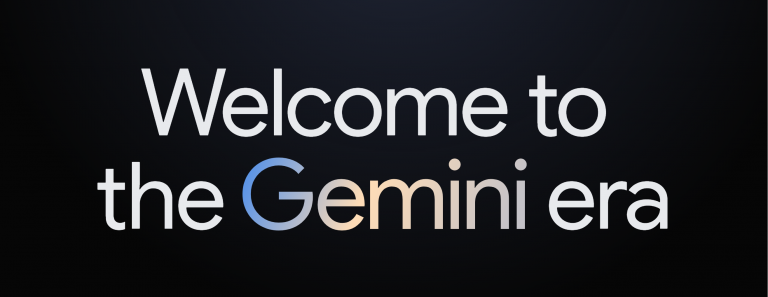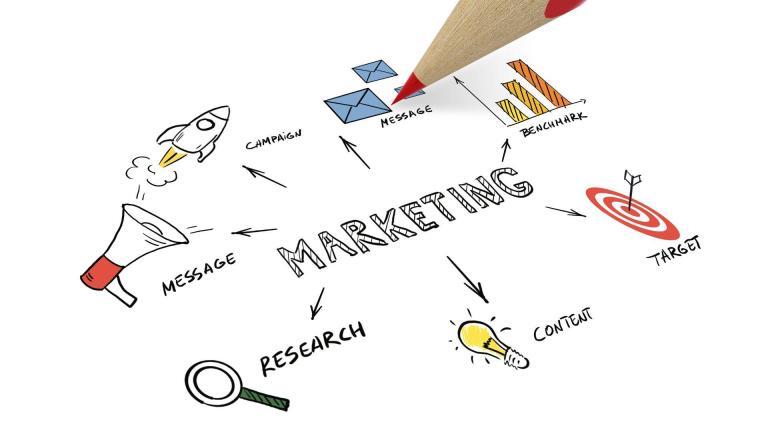Are you ready to embark on an exciting journey into the world of customized artificial intelligence? Already in the last few days we have been talking about the new release update GPT-4 Turbo from OpenAI reported. In this article, we will examine the revolutionary advances of OpenAI Custom GPTs, explore their capabilities and potential impact. With a focus on tailored AI, this blog post promises to be an engaging and insightful read. So buckle up and prepare to explore the fascinating realm of OpenAI Custom GPTs!
Contents
ToggleOverview of OpenAI Custom GPTs
Introduction to OpenAI Custom GPTs
Welcome to the world of OpenAI Custom GPTs! In this comprehensive article, we will explore the revolutionary concept of OpenAI Custom GPTs, their applications, development processes, challenges and limitations, real-world examples and success stories, the future of Custom GPTs, OpenAI's commitments and security measures, a comparison with alternatives and finally a strong conclusion. So, let’s dive in!
What is GPT?
Before we delve into OpenAI Custom GPTs, let's first understand what GPT is. GPT, short for Generative Pre-trained Transformer, is a state-of-the-art language processing model. It is pre-trained on a large dataset and has the ability to generate coherent and contextually relevant text based on a given set. GPT can handle a wide range of tasks, making it an incredibly versatile tool in the field of artificial intelligence.
Understanding OpenAI Custom GPTs
OpenAI Custom GPTs take the power of GPT to a whole new level. They allow users to customize and refine GPT models for specific domains and use cases. Custom GPTs allow you to train the model with your own data so that it can generate highly accurate and context-specific answers. This adaptability opens up exciting opportunities for various industries and research areas.
Advantages of OpenAI Custom GPTs
The benefits of OpenAI Custom GPTs are numerous and impactful.
By leveraging the customization capabilities of Custom GPTs, companies and researchers can:
- improve natural language processing
- revolutionize customer support and chatbot services
- Generate personalized content with ease
- Overcome language barriers with machine translation
- Adapt speech and voice recognition systems
These advantages make OpenAI Custom GPTs a game-changer in the world of AI-driven solutions.
Applications of OpenAI Custom GPTs
Improving natural language processing
OpenAI Custom GPTs provide a powerful toolset for improving natural language processing tasks. By fine-tuning the GPT models with specific datasets, developers and researchers can achieve higher accuracies and better understand user intent. From sentiment analysis to text classification, custom GPTs have the potential to transform the way we analyze and process human language.
Improving customer support and chatbots
With OpenAI Custom GPTs you can take your customer support and chatbot systems to a new level. By training the GPT models with relevant customer data, you can create highly efficient and context-aware virtual assistants. These assistants can provide personalized and accurate answers, resulting in improved customer experiences and increased customer satisfaction.
Personalized content creation
Content creation is an essential part of many industries, and OpenAI Custom GPTs provide a powerful solution. By training GPT models with industry-specific data, companies and content creators can automate content creation processes while maintaining high-quality and personalized results. From generating blog posts to creating marketing materials, Custom GPTs can save time and resources while ensuring tailored content.
Machine translation and language learning
Overcoming language barriers is a significant challenge, but OpenAI Custom GPTs offer a promising solution. By training GPT models with multilingual datasets, machine translation systems can be improved, enabling seamless communication in different languages. Additionally, Custom GPTs can help with language learning by providing contextualized translations and personalized language assistance.
Adaptation of speech and language recognition systems
Speech and language recognition systems have made tremendous progress, and OpenAI Custom GPTs play a significant role in their further development. Fine-tuning GPT models with large amounts of speech and language data can significantly improve the accuracy and performance of these systems. Custom GPTs enable companies and researchers to create highly accurate and personalized voice assistants, transcription services, and more.
Development of OpenAI Custom GPTs
Data collection and preprocessing for training
To develop OpenAI Custom GPTs, the first step is to collect and preprocess training data. It is crucial to collect a diverse and relevant data set that matches the specific domain or use case. This data should be preprocessed to eliminate noise, ensure consistency, and optimize the models. The quality and diversity of training data directly impact the performance of Custom GPT models.
Fine-tune existing GPT models
Once the training data is collected and preprocessed, the next step is to fine-tune existing GPT models. Fine-tuning involves running the pre-processed data through the model and adjusting its internal parameters to tailor it to the desired domain or use case. This process helps the model adapt and specialize in producing accurate and contextually relevant responses.
Domain-specific customization
The strength of OpenAI Custom GPTs lies in their ability to customize GPT models for specific domains. By training the models with domain-specific data, the custom GPTs are highly specialized and tailored to the unique challenges of different industries. This domain-specific customization ensures that the output generated is accurate and tailored to the specific needs of each domain.
Balancing privacy and bias concerns
As with any AI model, it is essential to address privacy and bias concerns when developing OpenAI Custom GPTs. OpenAI provides safeguards and policies to ensure data privacy and mitigate bias issues. Developers and researchers must prioritize ethical considerations and take measures to protect user privacy, avoid discriminatory language generation, and promote fairness in their models.
OpenAI recognizes the ethical concerns and controversies
They address these concerns through ongoing research, rigorous testing and community engagement. OpenAI aims to create AI systems that align with societal values and actively seek feedback from diverse perspectives to avoid undue concentration of power and address potential risks.
Audit and transparency measures
OpenAI believes in the importance of audits and transparency in AI systems. You are committed to providing public insight into the development and behavior of Custom GPTs. OpenAI intends to share information about the performance of models, their limitations and possible risks. These audit and transparency measures ensure accountability and build trust among the AI community and the broader public.
Balancing innovation and potential risks
OpenAI understands the need to balance innovation with potential risks associated with AI technologies. They strive to make informed decisions that prioritize the safety and well-being of users and society as a whole. OpenAI is committed to implementing appropriate safeguards and seeking external feedback when making decisions that have widespread societal impact.
Community engagement and partnerships
OpenAI values community engagement and partnerships in shaping the future of AI technologies. They actively seek input from external stakeholders, researchers and developers to ensure a collaborative approach. OpenAI fosters partnerships and creates opportunities for researchers to work together to develop safe, responsible and useful AI systems.
Comparison of OpenAI Custom GPTs with alternatives
Differences from traditional rule-based systems
OpenAI Custom GPTs differ significantly from traditional rule-based systems. Unlike rule-based systems that rely on predefined rules and patterns, Custom GPTs harness the power of machine learning to generate answers based on context and training data. This flexibility allows Custom GPTs to adapt to different domains and produce more accurate and contextually relevant results.
Contrast with pre-trained language models
While Custom GPTs share similarities with pre-trained language models, they offer a higher level of customization. Pre-trained models provide a starting point for various tasks, but Custom GPTs allow developers and researchers to refine the models with domain-specific data. This customization allows users to produce highly accurate outputs tailored to their specific needs.
Advantages over other generative AI models
OpenAI Custom GPTs offer advantages over other generative AI models. Custom GPTs excel at producing coherent and contextually relevant text, making them suitable for a wide range of applications. Compared to other generative models, Custom GPTs can be refined with specific data, providing a higher level of accuracy and customization that is invaluable in various industries.
Limitations compared to human intelligence
Although OpenAI Custom GPTs are powerful AI models, they have limitations compared to human intelligence. Custom GPTs are dependent on the training data and tuning process, meaning they are limited by the available data set and may have difficulty generalizing to unknown data. Additionally, Custom GPTs lack human-like understanding and can occasionally produce output that lacks deeper meaning or fails to capture complex nuances.
Hybrid approaches and integration options
To overcome the limitations of OpenAI Custom GPTs and leverage the strengths of other AI models, developers can explore hybrid approaches and integration options. By combining Custom GPTs with other models, such as rule-based systems or reinforcement learning algorithms, it is possible to create more robust and context-aware AI systems. These hybrid approaches open up new possibilities for AI development.
Practical examples and area of application:
- Custom GPTs in content production and marketing
- Improving virtual assistants and chatbots
- Customizing GPTs for social media and marketing
- Customization in language translation services
- Custom AI integration in eCommerce and logistics
Conclusion
In this comprehensive article, we explored the world of OpenAI Custom GPTs. We discussed the introduction and understanding of Custom GPTs, their benefits, applications in natural language processing, customer support, content production, translation services and speech recognition systems. We also covered the development process, challenges and limitations, practical examples, and the future of Custom GPTs. OpenAI's commitments, comparisons with alternatives and the impact of custom GPTs in research and various industries were highlighted. We discussed the potential disruptions, ethics and regulation, and concluded with a call to action for developers and industries to embrace the OpenAI Custom GPTs revolution. With OpenAI Custom GPTs, the future of AI-driven solutions looks brighter than ever. So let’s shape this future together!
FAQs
What differentiates OpenAI Custom GPTs from standard versions?
OpenAI Custom GPTs offer greater personalization and customization ability than standard versions. They allow users to create their own versions of ChatGPT, which can contain specific instructions, additional knowledge and different combinations of skills. This allows for a more precise and user-specific application compared to more general standard versions.
How to integrate OpenAI Custom GPTs into existing systems?
The technical and strategic integration of OpenAI Custom GPTs into existing systems requires adapting the AI models to the specific needs and processes of the respective system. This can be done by developing customized chatbots for customer service, personalized content for educational platforms, or specialized business intelligence applications. Integration should always be carried out with a focus on compatibility and increasing efficiency.
Which industries benefit most from OpenAI Custom GPTs?
A variety of industries can benefit from OpenAI Custom GPTs, especially those that rely heavily on personalized communications and data analysis. These include the education sector, customer service, healthcare, e-commerce, financial services and technology companies. Each industry can develop specific use cases tailored to their unique needs.
What ethical considerations are associated with using OpenAI Custom GPTs?
When using OpenAI Custom GPTs, ethical aspects such as data protection, accountability, transparency and possible biases in AI must be taken into account. It is important to establish policies and controls to prevent abuse and ensure that AI models are used fairly and responsibly.
What does the future of tailored AI models look like?
The future of tailored AI models like OpenAI Custom GPTs looks promising, with trends toward even greater personalization, efficiency, and versatility. Such models are expected to be introduced in more and more industries and become an integral part of business processes and everyday applications. Continued development is likely to lead to even more powerful and user-friendly AI solutions.



